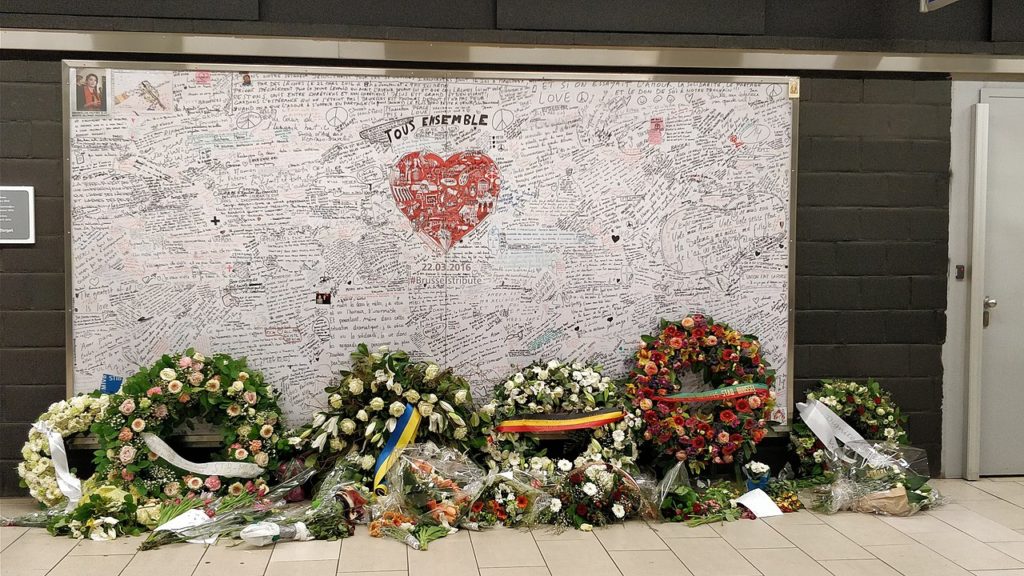The United Nations has issued a report critical of the Belgian government, accusing it of failing to provide the proper medical and psychological support to victims of the victims of the terrorist attacks of 22 March 2016. The report was written by Irish special rapporteur Fionnula Ni Aolain, who in May last year had interviewed a number of the survivors of the attacks at Brussels Airport and Maalbeek metro. She also visited Hasselt prison, where a number of suspects and radicalised prisoners are detained.
“Belgium has done some things very well in the fight against terrorism,” she reports, but complains that too little has been done for the victims of terrorism. “From my conversations it became clear that the victims feel they have been left behind, and have had difficulty in finding medical or psychological support. They are affected by loss, pain and overwhelming trauma.”
She is also critical of the lack of a systematic programme for deradicalisation, and speaks of “a fundamental problem concerning human rights.”
The report is something of a vindication of victims of the attacks, who several times since the events of that day have complained of the difficulties they have experienced in obtaining recognition and compensation from the Belgian authorities. The committee of enquiry set up by the federal parliament made similar remarks in its conclusions, pointing too too many authorities involved, too many sources of medical reports and the complicated and lengthy administrative procedure involved.
Meanwhile, 48-year-old Philippe Vandenberghe continues his hunger strike in the departures hall of Brussels Airport, where the suicide bombing took place. He is today in his 19th day. His aim? To maintain his protest from a camp bed close to the site of the explosions until the government finally – almost three years after the events – takes substantial action in favour of the victims.
Vandenberghe worked in the airport in its IT department, and when the attack took place – two men exploded suitcase bombs, while a third who should have done so left the scene and was arrested later – and while himself uninjured, was one of the few civilians left to cope with the victims until emergency services arrived.
Each night, he told De Morgen, he relives the events of that morning all over again, a clear sign of post-traumatic stress. Yet his insurer Ethias has refused to consider him a victim since his experience does not fall under the definition of a work-related accident.
He was the first civilian on the scene, a trained first-aider now known to airport staff as the Angel of Zaventem. He recalls every horrific detail.
“There were two soldiers, apart from that no-one. In the hall there were four people still alive. One lady, a Dutch woman, was dying. Her foot was gone. I applied an emergency bandage and put her in a position where she could breathe through her mouth. Her name was Elita Weah, I found out later. She died in my arms.”
Elita Weah was one of 17 people who died at the airport that Tuesday morning, including the two suicide bombers. An hour later, another explosion on the metro took the lives of 13 citizens, and one bomber. Four people died later of their injuries. In all, more than 300 people were injured.
Alan Hope
The Brussels Times

